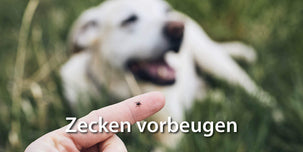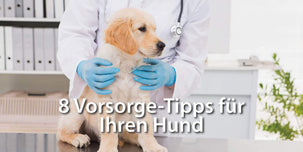VORSORGE
Aktuelle Blogbeiträge

Zecken Hund – so beugen Sie vor
Wie kann ich Zecken beim Hund vorbeugen? Und was mache ich, wenn ich doch mal eine Zecke entdecke? Die wichtigsten Infos und Tipps rund um den Zeckenbefall beim Hund lesen Sie in diesem Blogartikel. Jetzt mehr erfahren.

Medical training dog - the 5 most important commands
This makes a relaxed and stress-free visit to the vet possible. In this blog article, we have summarized the most important information and tips for medical training for your dog. Find out more now.

Neue Gebührenverordnung für Tierärzte - 8 Tipps gegen hohe Kosten
Am 22. November trat die neue Gebührenverordnung für Tierärzte (GOT) in Kraft und der Tierarztbesuch wurde für Sie deutlich teurer. Wie Sie vorsorgen können, damit die Gesundheit Ihres Tieres bezahlbar bleibt, erfahren Sie in diesem Blogartikel.
